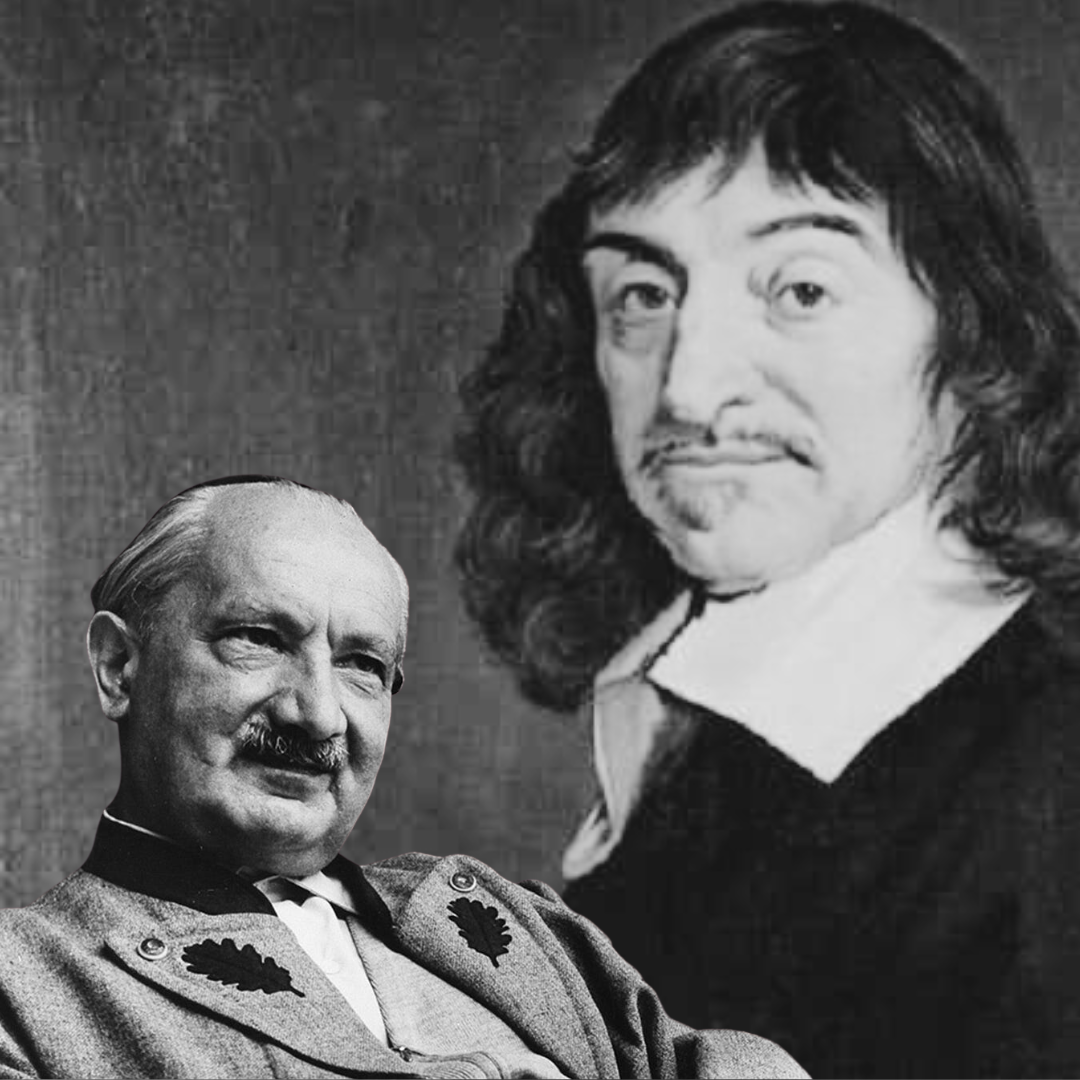“The elaboration of the question of being must therefore receive its directive to inquire into its own history from the most proper ontological sense of the inquiry itself, as a historical one; that means to become historical in a disciplined way in order to come to the positive appropriation of the past, to come into full possession of its most proper possibilities of inquiry. The question of the meaning of being is led to understand itself as historical in accordance with its own way of proceeding, that is, as the provisional explication of Dasein in its temporality and historicity. The preparatory interpretation of the fundamental structures of Dasein with regard to its usual and average way of being — in which it is also first of all historical — will make the following clear: Dasein not only has the inclination to be entangled in the world in which it is and to interpret itself in terms of that world by its reflected light; at the same time Dasein is also entangled in a tradition which it more or less explicitly grasps,” (20)
can be found in Chapter Two (“The Double Task in Working Out the Question of Being: The Method of the Investigation and Its Outline”), Part Six (“The Task of a Destruction of the History of Ontology”) of Martin Hiedegger’s Being and Time (1953, Stambaugh 2010 ed.).
Throughout the first chapter of Being and Time, Hiedegger formulates the importance of its investigation, its structure, and the overall a priori in the question of being [Sein] and existence [Dasein]. Chapter two proceeds with the method of investigating in the ontology of Being. Time — Hiedegger states in verse [18] before his argument in The Task of a Destruction of the History of Ontology (segment 6) — and the common understanding of time, originates from temporality, wherein which the being of Dasein finds its meaning (19). Time, a concept Dasein uses to understand and interpret “the world”, being, and Dasein itself (17); temporality a state of Dasein’s being in relation to that time, or the “historical condition” (or its histocity) of Dasein. The historicity of Dasein constitutes as the “occurrences” of its being in its relation to “the world”. Unfortunately some historical concepts of time, according to Heidegger, contribute “nӓive” ways of distinguishing its’ different regions of being (18), which in turn, disrupts further investigations of the meaning of being itself.
That being said, “The elaboration of the question of being must therefore receive its directive to inquire into its own history from the most proper ontological sense of the inquiry itself, as a historical one [...] The question of the meaning of being is led to understand itself as historical in accordance with its own way of proceeding, that is, as the provisional explication of Dasein in its temporality and historicity,” (20) Hiedegger states that as the question of being is evaluated, the history of the inquiry of the ontological investigations in the elaboration of the question of being must also be evaluated beforehand. Examining previous investigations enable insights into the ontology of Dasein because it still constitutes as Dasein’s own history, in terms of inquiries it made onto itself. Dasien understands itself initially in terms of its interpretations and, under certain ranges, continues to do so.
“The preparatory interpretation of the fundamental structures of Dasein with regard to its usual and average way of being — in which it is also first of all historical — will make the following clear: Dasein not only has the inclination to be entangled in the world in which it is and to interpret itself in terms of that world by its reflected light; at the same time Dasein is also entangled in a tradition which it more or less explicitly grasps,” (20). Here Hiedegger notes two statements when proceeding with the ontological investigation in regards to
Dasein in its usual and averageness (that is, Dasein’s “uninterrupted” and contemporary interactions in and with “the world”). The first statement being Dasein is “entangled” in a world in which It is left to interpret using what is inherently “shown” to Dasein. What is inherently “shown” to Dasein not in terms of appearance, but rather the phenomena exposed to Dasein. And second, Dasein is “entangled” in the historical interpretations (“traditions”) made about Dasein that it merely understands. That is, Dasein is subjugated to its own interpretations of what “the world” shows itself to Dasein, and is subjugated to the historical ontological investigations made about Dasein itself (ontological interpretations that may or may not resonate with Dasein per se). This “entanglement” discloses the possibilities of Dasein and regulates them, not be taken negatively, but rather as a distinction of the being of existence [Dasein] itself.
In The Task of a Destruction of the History of Ontology, Hiedegger argues some of which constitutes as the problem of the ontology of being is the misinterpretation of the ontology of time (more specifically temporality), which in turn results in the misinterpretation of the meaning of being. His introduction to the task of the destruction of the “history” of ontology includes his criticisms on Henri-Louis Bergson, Immanuel Kant and René Descartes specifically, and a referral back to Greek ontology.
On Greek ontology, Hiedegger notes that ancient interpretations of the temporality of the being of beings is generally oriented towards “the world” or “nature” in its understanding of being from time. Being, in this case, meaning “present” in regards of mode of time: “Beings are grasped in their being [Sein] as ‘presence’; that is to say, they are understood with regard to a definite mode of time, the ‘present’,” (24). Aristotle whose foundation “transcends” the ontology of temporality and whose treatise of time was specifically used as the basis of interpretation, something objectively present in its sheer objective presence. Hiedegger highly regards the Greek determination towards being from time, however, he states the problem with Greek ontology derives from the formulation of the concept of Dasein itself; rather than the ineffective grasp of temporality resulting in the dismissive ontology of the meaning of being (for example Bergson, Kant, and Descartes). Greek philosophy determines the philosophical definition of Dasein, the being of human beings, as that of whose being is essentially determined by its ability to speak, “That is why the ancient ontology developed by Plato becomes ‘dialietic’ [...] which was a genuine philosophical embarrassment...” (24).
On Henri-Louis Bergson whose thesis, Hiedegger notes, regards time as really space (17), time a sequence of events presented as a spatialized form of time.
On Immanuel Kant Hiedegger says two things that prevented Kant's insight: (1) the neglect of the question of being in general and (2) the lack of "thematic ontology" of Dasein, "or in Kantian terms 'the lack of preliminary ontological analytic of the subjectivity of the subject," (23).
On René Descartes, first of all, the fact that his mind/body distinction separates Dasein from being itself; and the fact that Descartes Meditation refers back to 'medieval' ontology, a referral to 'createdness' or the idea that things are produced in a supernatural sense.
“Tradition” makes us forget about Dasein’s past, that is, Dasein gets so entangled in the interpretations of ontology that it begins to question whether or not the preliminary investigation into the meaning of being is necessary (21). The onset of Hiedegger’s argument in part one of chapter one was that the question of the meaning of being was unresolved and improperly formulated; despite all the interest in metaphysics, Hiedegger says that too is forgotten. Greek ontology, according to Hiedegger, is at least proof that the Dasein once understood itself and its being in general in terms of the “world”. Dasein must destroy the traditional content of ancient ontology and replace it with the formulation of the question of being (which, if we’re referring back to Greek ontology, the question of being a never ending and continuous task of Dasein). However in order to do so, Dasein must refer to itself historically and in the traditions that regard the investigation of ontological temporality of being in order to thoroughly come to its possibilities of inquiry. Doing so enables Dasein a better approach into the inquiry of the question of being going forward.
Works cited
Heidegger, Martin, and Joan Stambaugh. Being and Time: a Translation of Sein Und Zeit. State University of New York Press, 2010.





